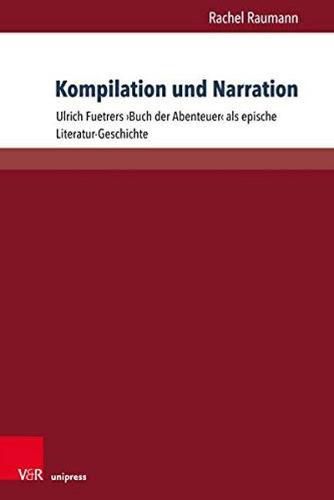Readings Newsletter
Become a Readings Member to make your shopping experience even easier.
Sign in or sign up for free!
You’re not far away from qualifying for FREE standard shipping within Australia
You’ve qualified for FREE standard shipping within Australia
The cart is loading…






The survey analyses the upcoming intersection between compilation processes and narratives in Ulrich Fuetrers book Buch der Abenteuer (Book of adventures) for the first time. The author shows that Fuetrer uses established adaption techniques although he reinvents these processes. By using his compilatio process he not only describes the antecedent works but also the narrative techniques connected with the works and genres and thus generates an artificial compendium, an epic literature-history. The survey gives detailed insights in literature-historical, poetological and narratological developments whose effects on the time period between the late middle ages and early modern times have not been sufficiently analysed yet. Here, the survey makes an important literary-critical contribution on the controversial and for centuries ongoing debate on the early modern epochs.
$9.00 standard shipping within Australia
FREE standard shipping within Australia for orders over $100.00
Express & International shipping calculated at checkout
The survey analyses the upcoming intersection between compilation processes and narratives in Ulrich Fuetrers book Buch der Abenteuer (Book of adventures) for the first time. The author shows that Fuetrer uses established adaption techniques although he reinvents these processes. By using his compilatio process he not only describes the antecedent works but also the narrative techniques connected with the works and genres and thus generates an artificial compendium, an epic literature-history. The survey gives detailed insights in literature-historical, poetological and narratological developments whose effects on the time period between the late middle ages and early modern times have not been sufficiently analysed yet. Here, the survey makes an important literary-critical contribution on the controversial and for centuries ongoing debate on the early modern epochs.